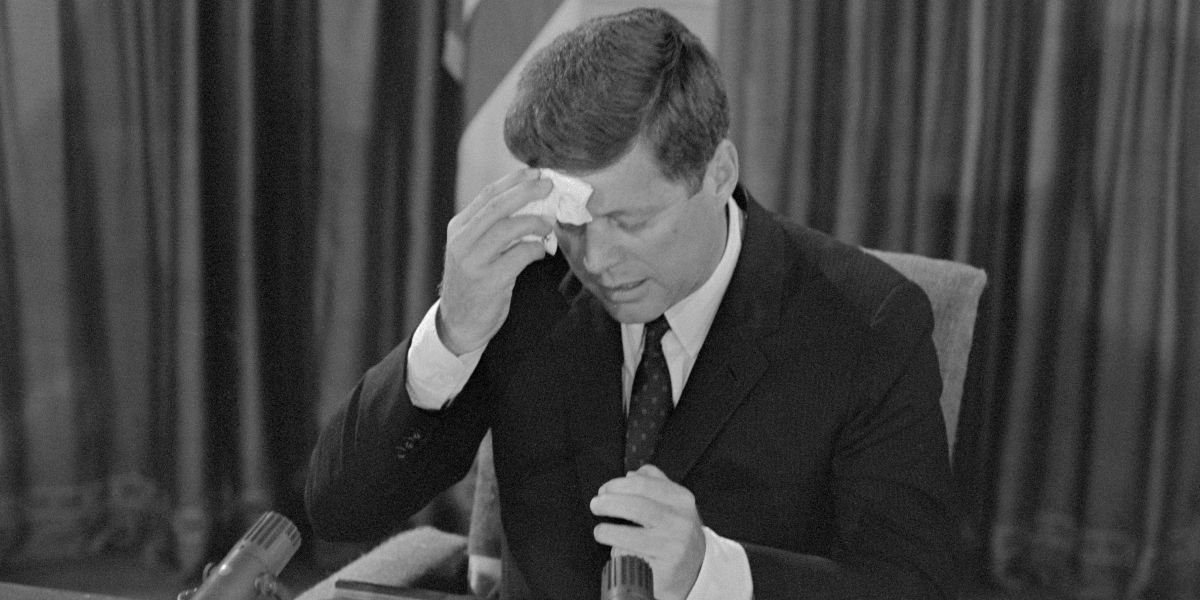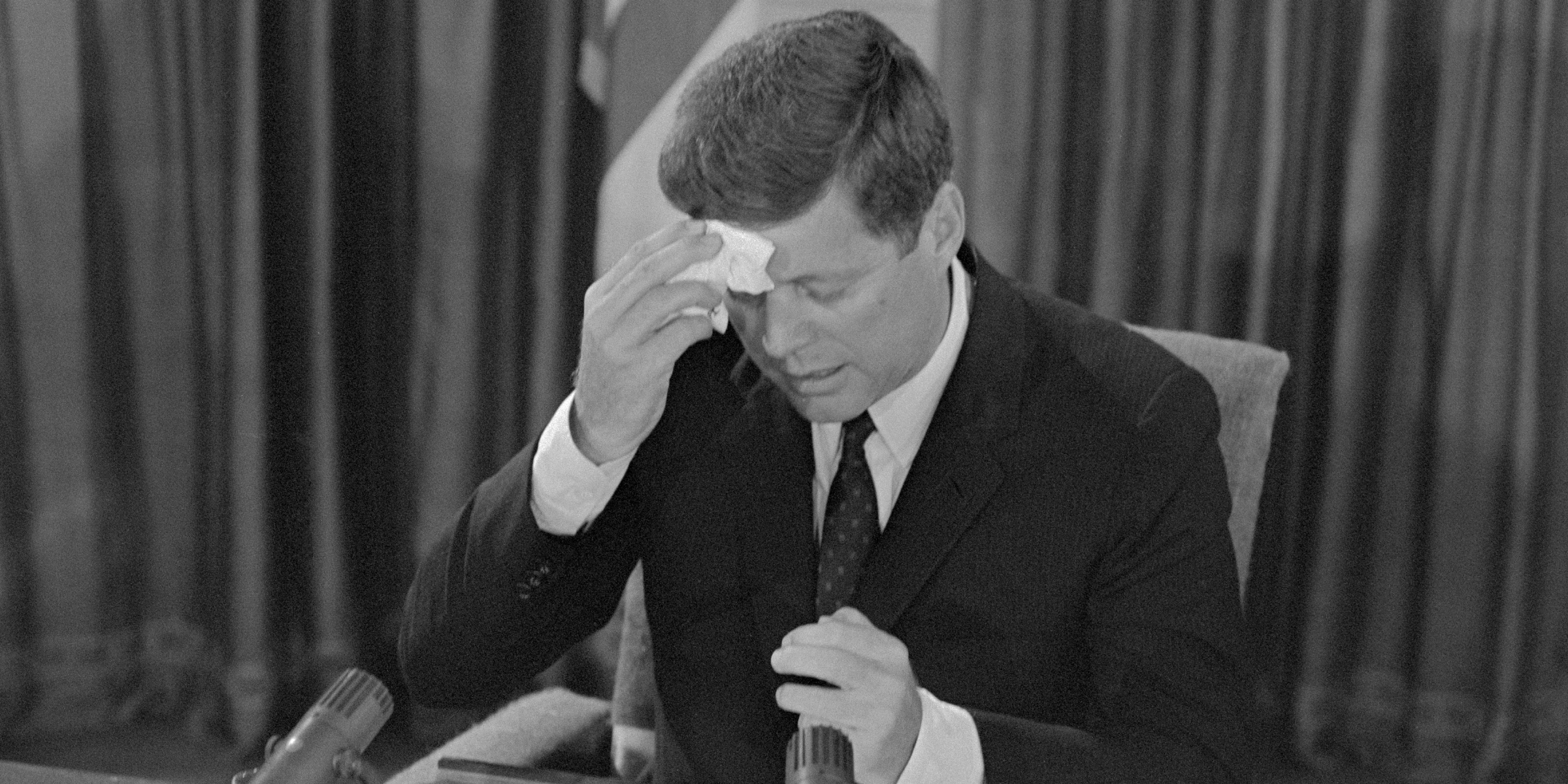
Previously Withheld JFK Files Have Been Released – Here’s Where to Find Them
The release of thousands of previously withheld records tied to the late president follows an executive order issued earlier this year. Here’s where to access the latest JFK files.
The National Archives has released the latest records related to the 35th U.S. President John F. Kennedy’s assassination as part of an ongoing digitization effort.
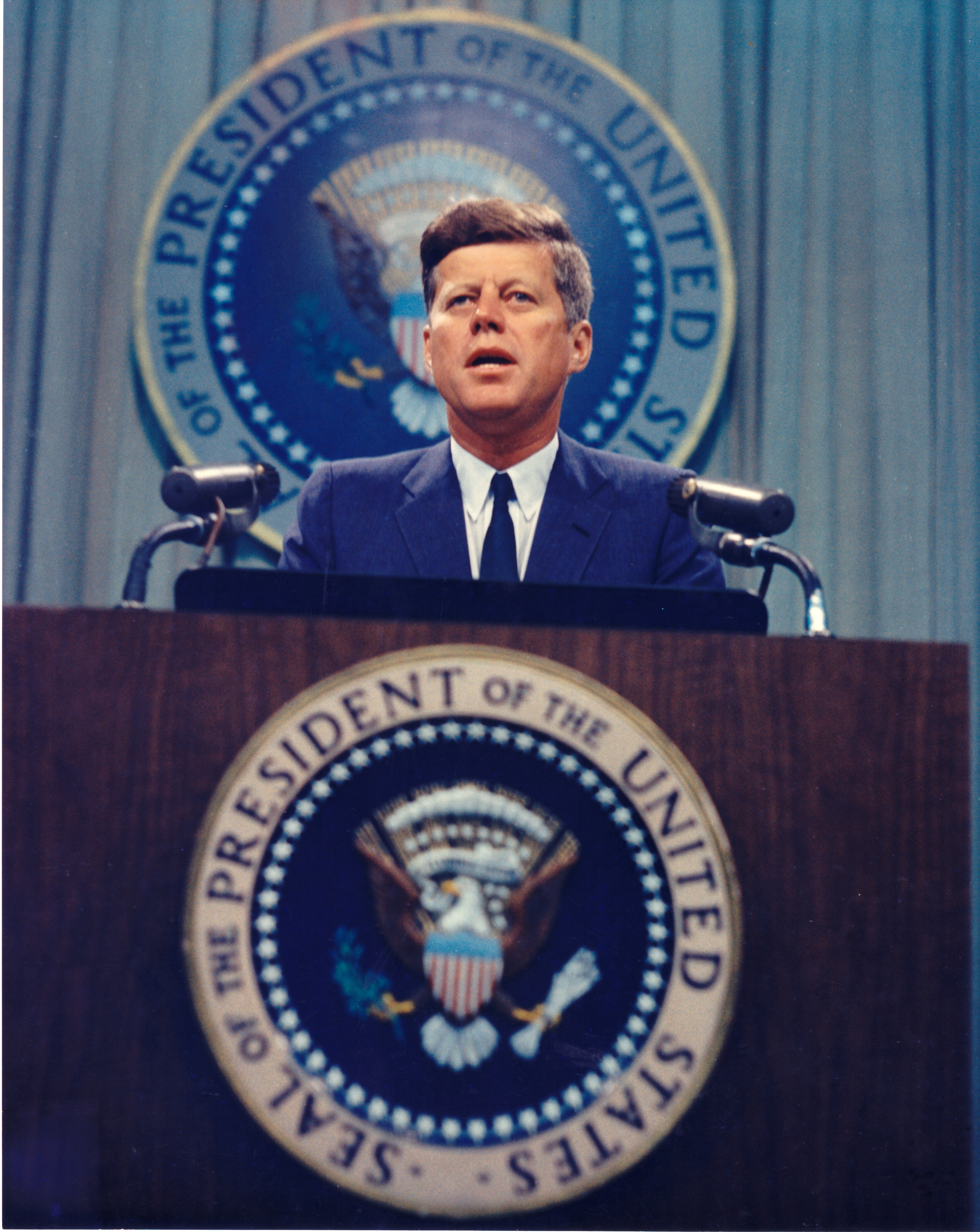
US President John F. Kennedy speaks at a press conference in Washington, DC, in 1963 | Source: Getty Images
This initiative follows
Executive Order 14176
, signed by President Donald J. Trump in January 2025, which mandates the declassification of records related to the assassinations of John F. Kennedy (JFK), Senator Robert F. Kennedy (RFK), and Reverend Dr. Martin Luther King Jr.
The newly digitized materials are available through the
National Archives Catalog
. They include materials from the “Warren Commission,” such as administrative files, agency submissions, draft reports, photographs, artifacts, and recordings. So far, over
700,000 pages
have been digitized from a collection of more than six million pages.
In addition to the online release, the National Archives launched a
dedicated webpage
on February 28, providing information about the President John F. Kennedy Assassination Collection and how to access it.
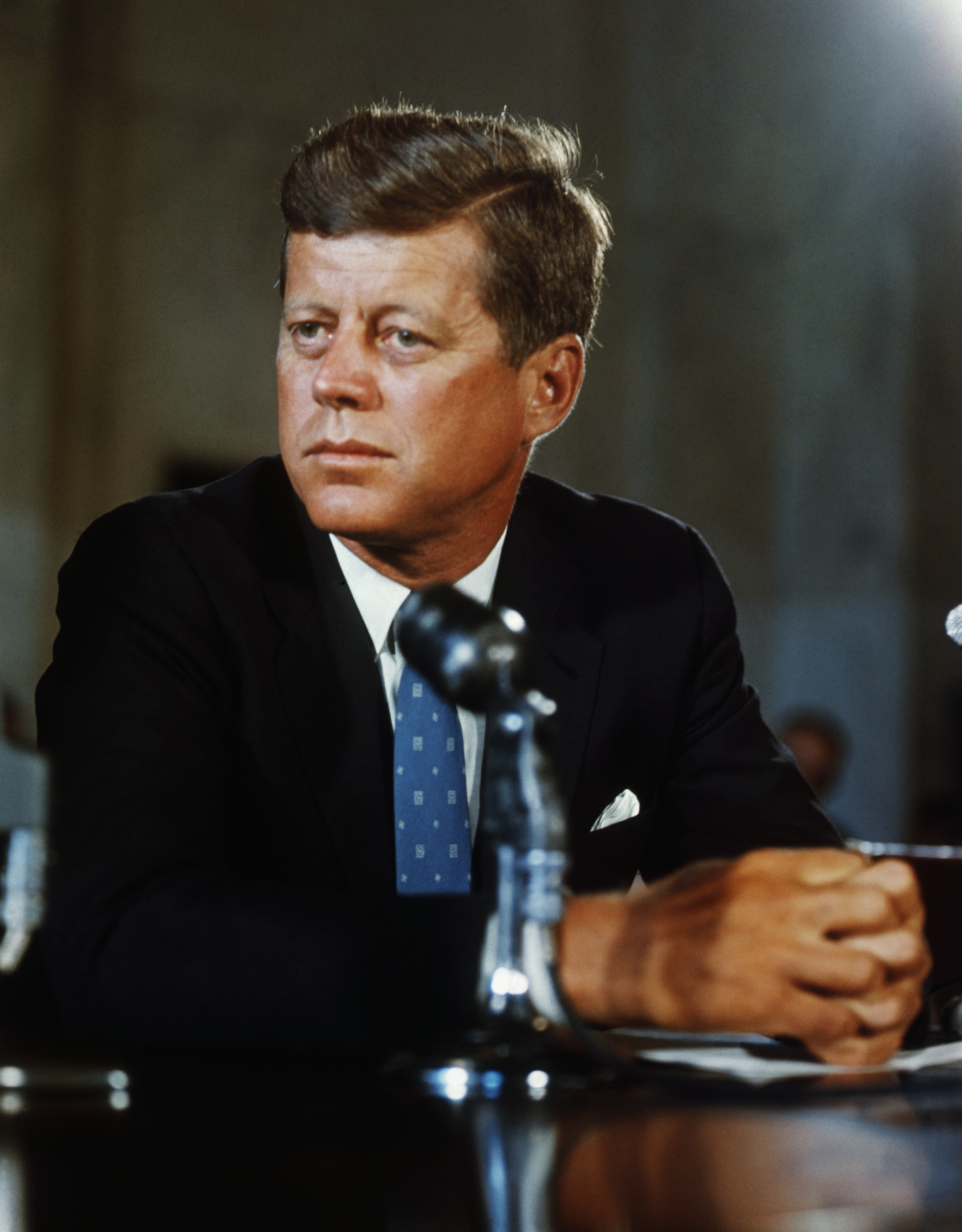
US President John F. Kennedy sits at his desk in the White House on his first day in office in 1961 | Source: Getty Images
Records that have not yet been digitized remain available for
public viewing
at the agency’s facility in College Park, Maryland. Appointments are encouraged but not required.
The National Archives will keep adding records online as more declassification decisions are made by Trump or other U.S. agencies. The agency says it is ready to handle any future releases.
Experts and historians have shared mixed reactions to the latest release. James Johnston, author of “Murder, Inc.: The CIA under John F. Kennedy,” told USA Today
that he doubted the documents would contain
major revelations
.
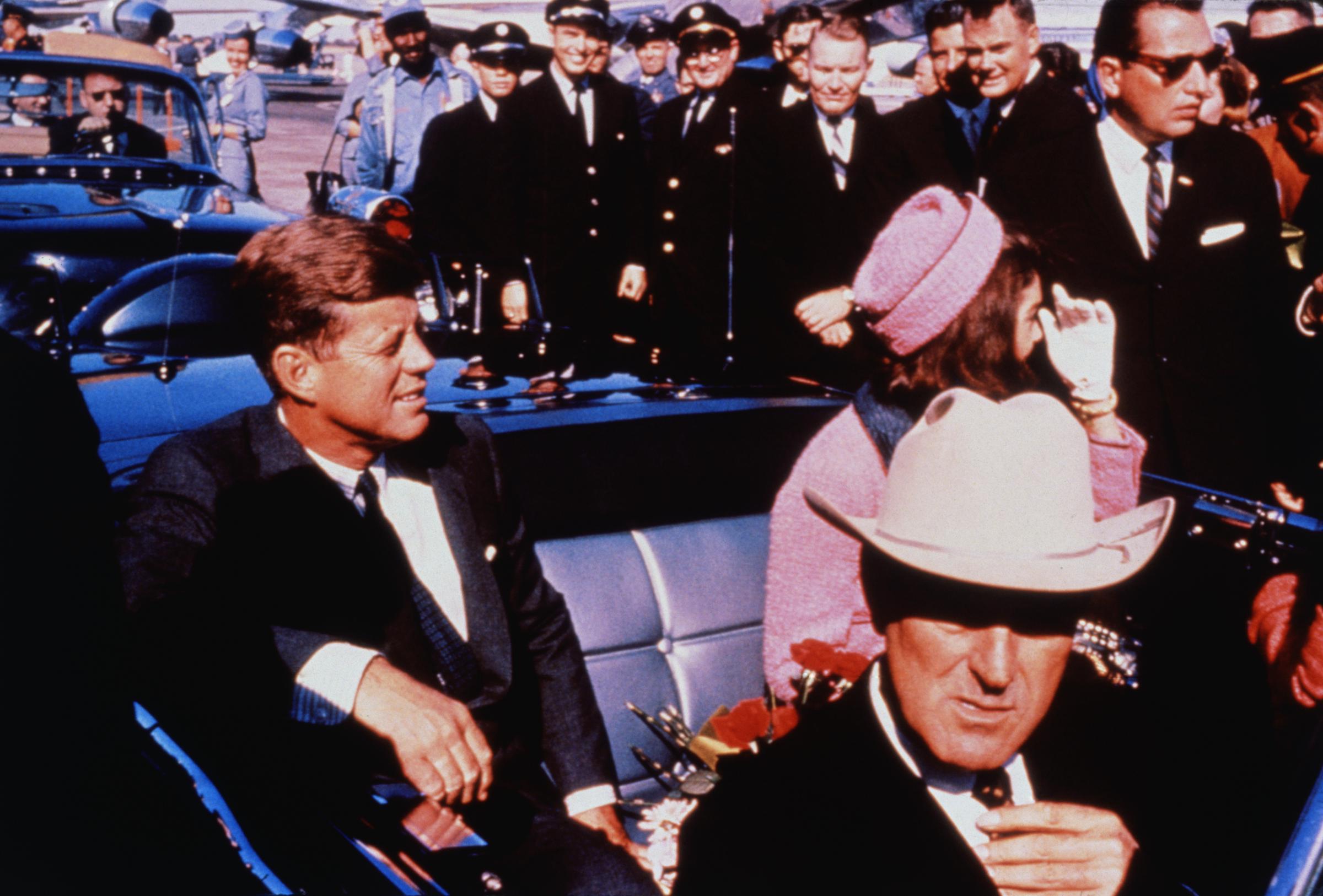
US President John F. Kennedy and First Lady Jacqueline Kennedy in a motorcade from the airport on November 22, 1963 | Source: Getty Images
“If it was going to embarrass the agency or tell a different story, they wouldn’t have turned them over to the National Archives in the first place,”
said
Johnston, who previously served on the congressional Church Committee investigating the CIA in 1975.
Johnston also suggested that if any records had previously been withheld due to their sensitivity, it was likely those records would continue to remain classified.
Pulitzer Prize-winning biographer Jonathan Eig told The New York Times (NYT) that he did not expect significant new insights from the records concerning King Jr.’s assassination. “I would be very surprised if there was some kind of smoking gun, or revelation of an alternate assassin,” Eig
said
while reviewing the documents.
Meanwhile, Tim Naftali, an adjunct professor at Columbia University, offered a different view. He told NYT that the redacted information had
not been classified
to hide details about JFK’s assassination but to protect the Central Intelligence Agency’s (CIA) “sources and methods.”
Naftali, also a former director of the Richard Nixon Presidential Library, noted that some new files revealed information missing from earlier releases, including that the U.S. had intercepted communications in Egypt, an ally.
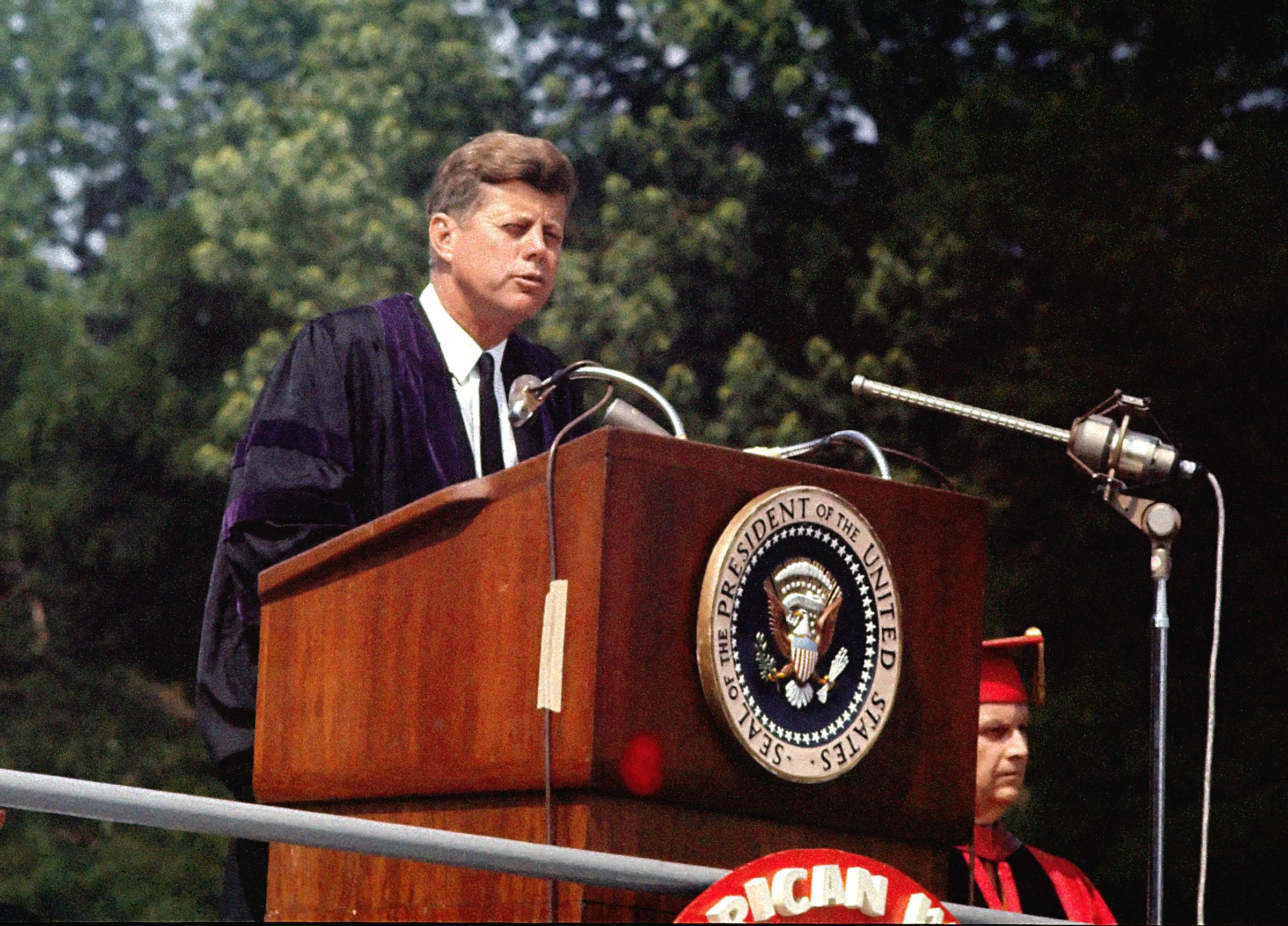
US President John F. Kennedy attends American University’s commencement in Washington, DC, on June 10, 1963 | Source: Getty Images
The release also prompted a response from Kennedy’s family. His grandson, Jack Schlossberg, posted on X that they received no prior notice from the Trump administration. Schlossberg described the release as unexpected,
calling
it “a total surprise.”
In the lead-up to the release, the U.S. Justice Department reportedly ordered its national security lawyers to expedite the review of
assassination-related records
. This effort followed Trump’s January executive order directing the release of roughly 80,000 pages of material on the deaths of prominent leaders.
The order also prompted federal agencies, including the FBI, to locate thousands of previously unreleased documents.
According to Reuters, an internal email showed that Christopher Robinson, an official in the department’s National Security Division, instructed attorneys in the Office of Intelligence Operations Section to review between
400 and 500 documents
each, with a deadline set for noon Tuesday.
The batch included records concerning the assassinations of JFK, RFK, and King Jr.
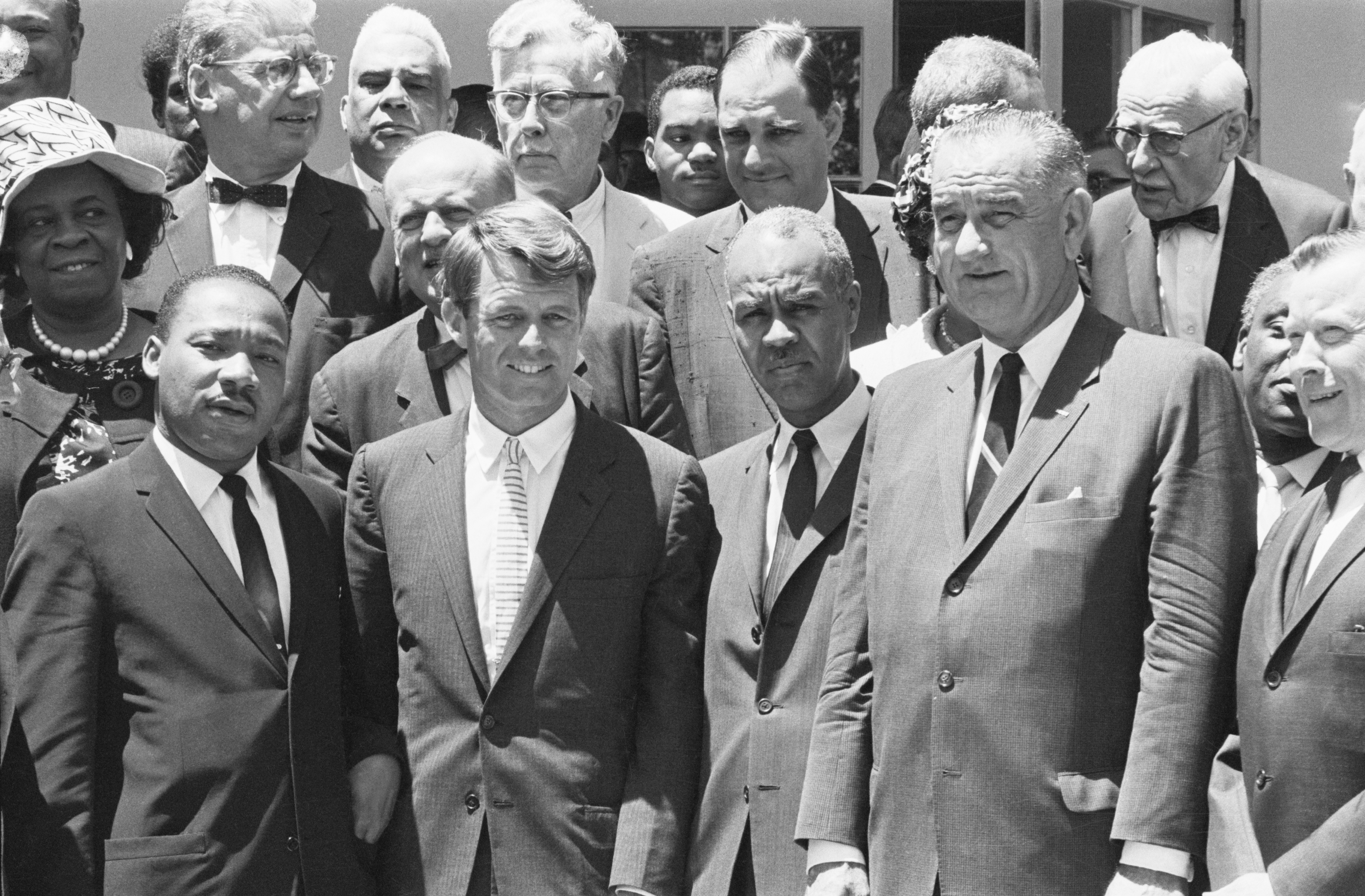
Martin Luther King Jr. and President John F. Kennedy meet with civil rights leaders at the White House on June 22, 1962 | Source: Getty Images
Some FBI agents were temporarily reassigned to assist with the process, including reviewing files related to RFK’s 1968 assassination. A Justice Department spokesperson reportedly confirmed that operations under the Foreign Intelligence Surveillance Act (FISA) were
not disrupted
during the review.
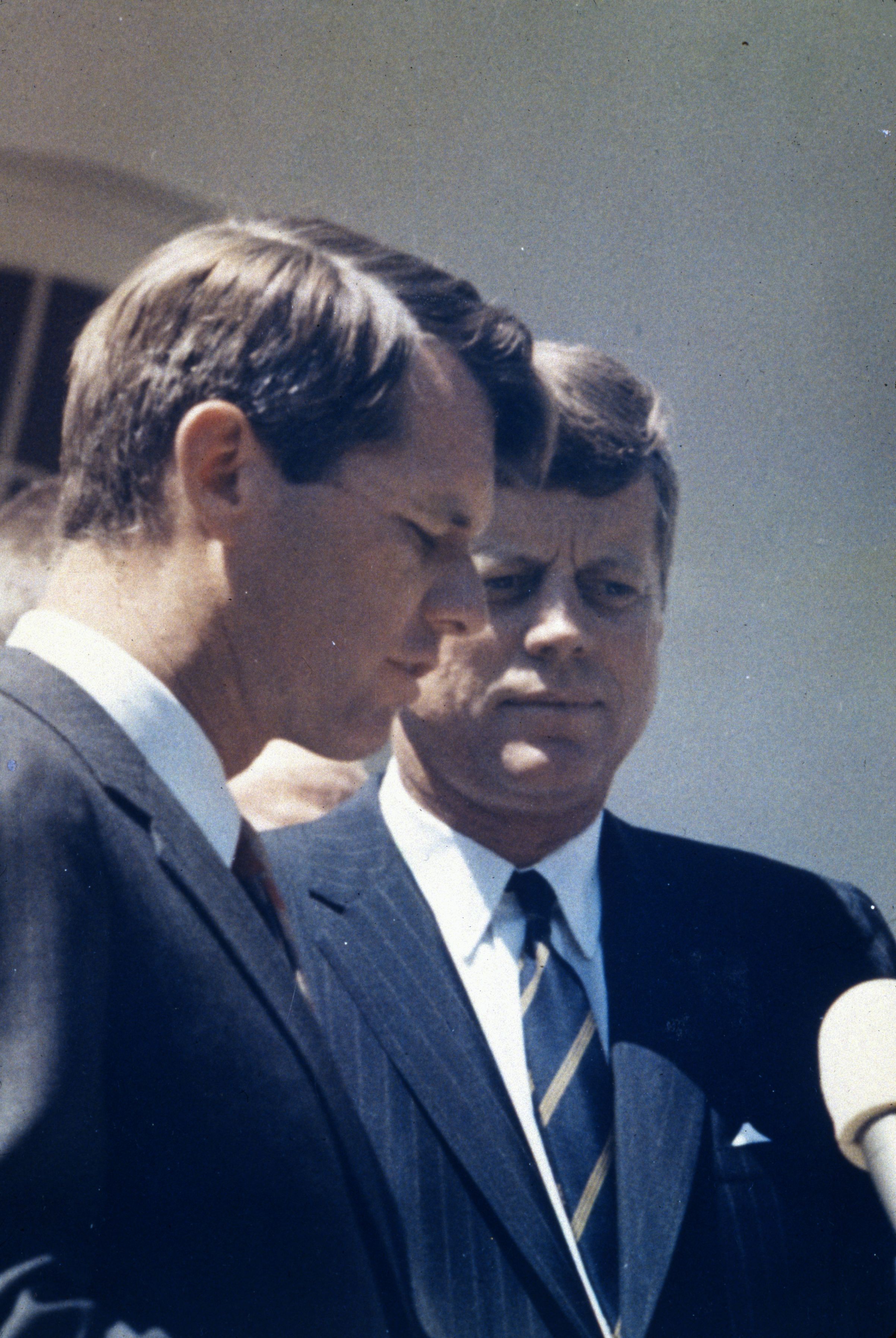
US President John F. Kennedy and his brother, Attorney General Robert Kennedy, on January 1, 1960 | Source: Getty Images
However, the decision to divert legal resources raised concerns among former officials. Former department attorneys described the move to assign all attorneys from the Office of Intelligence Operations Section to the review as highly unusual, warning it could undermine national security work.
David Laufman, former chief of the department’s Counterintelligence and Export Control Section,
warned
that diverting resources from processing FISA applications “would be to the detriment of U.S. national security interests.”

President John F. Kennedy and Robert F. Kennedy speak outside the White House on January 1, 1960 | Source: Getty Images
Official accounts have long attributed JFK’s assassination to a sole gunman, Lee Harvey Oswald. That conclusion has been reaffirmed by the Justice Department and other federal agencies over the years.
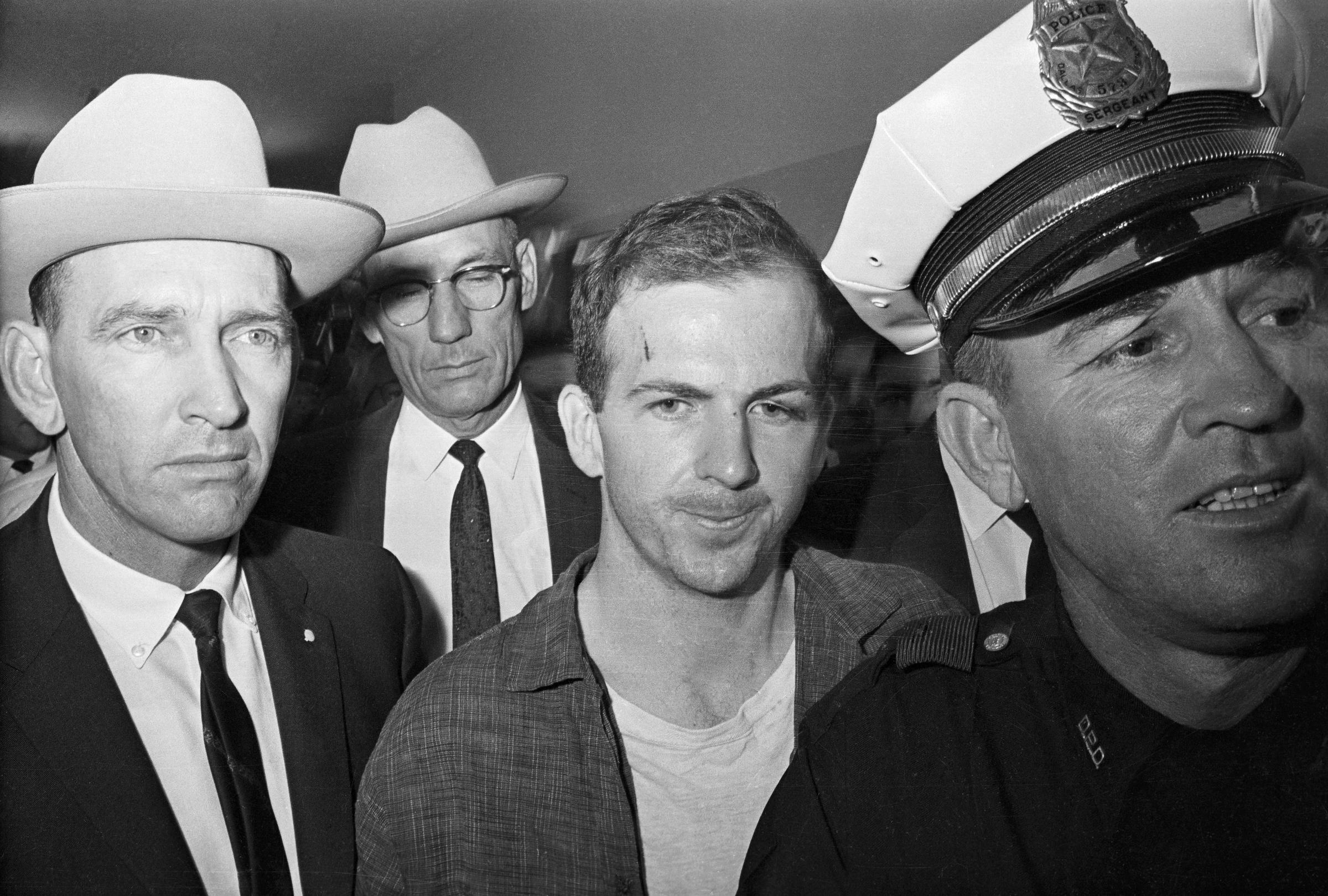
Lee Harvey Oswald on November 22, 1963 | Source: Getty Images
Robert F. Kennedy Jr.
, who currently leads the Department of Health and Human Services, has alleged without evidence that the CIA was involved in his uncle’s death. The agency has repeatedly denied the claim.
He has also asserted that his father, RFK, was killed by multiple gunmen, a claim that contradicts official findings.
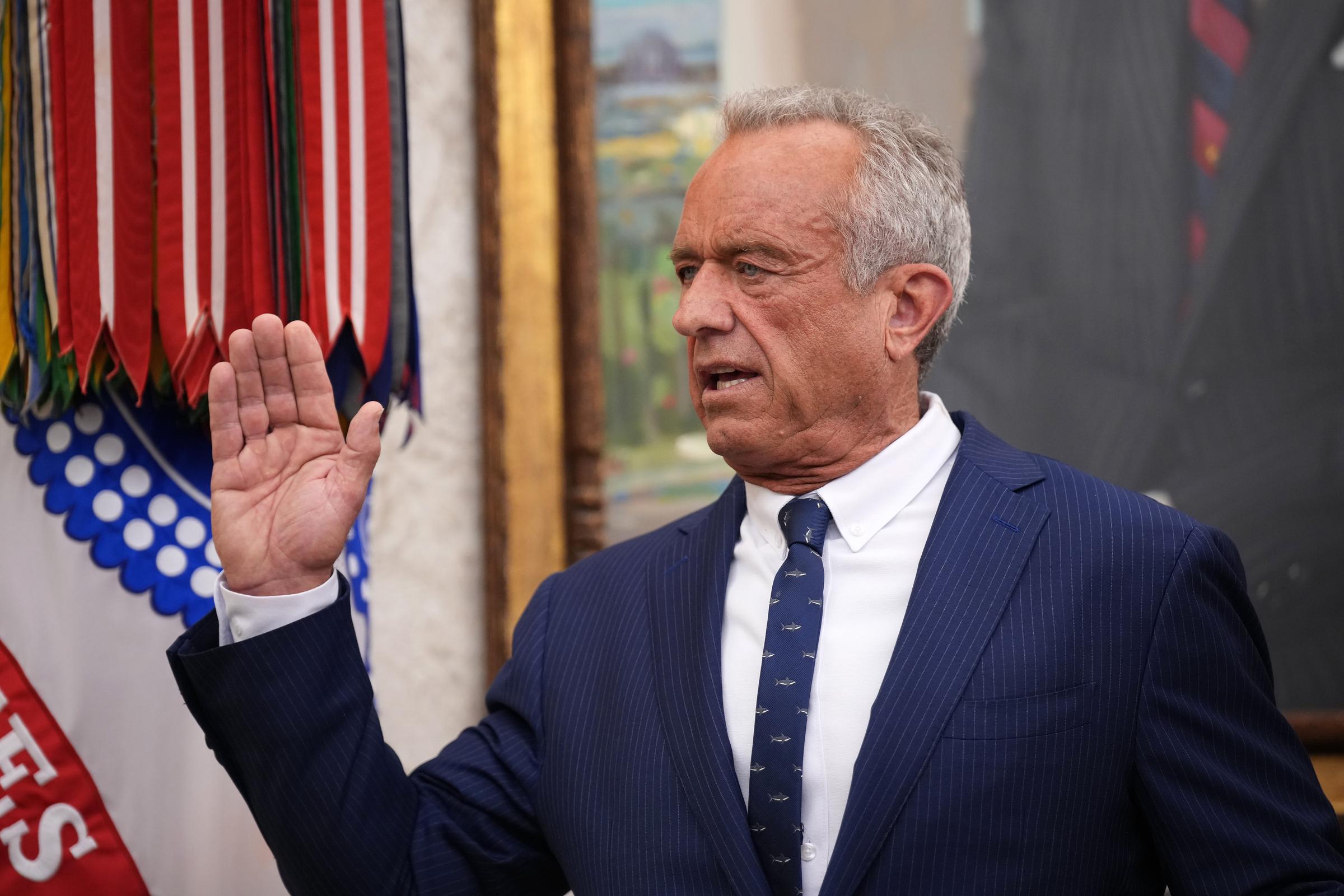
Robert F. Kennedy Jr. is sworn in as Health Secretary at the White House on February 13, 2025 | Source: Getty Images
The review also occurred amid
reported staffing changes
within the department’s National Security Division. According to Reuters, several senior officials were reassigned earlier this month, leaving key leadership roles vacant.
